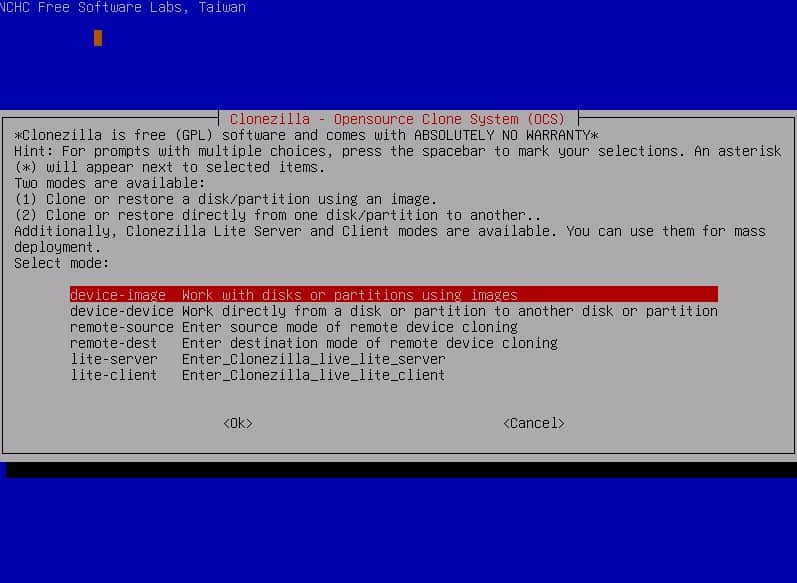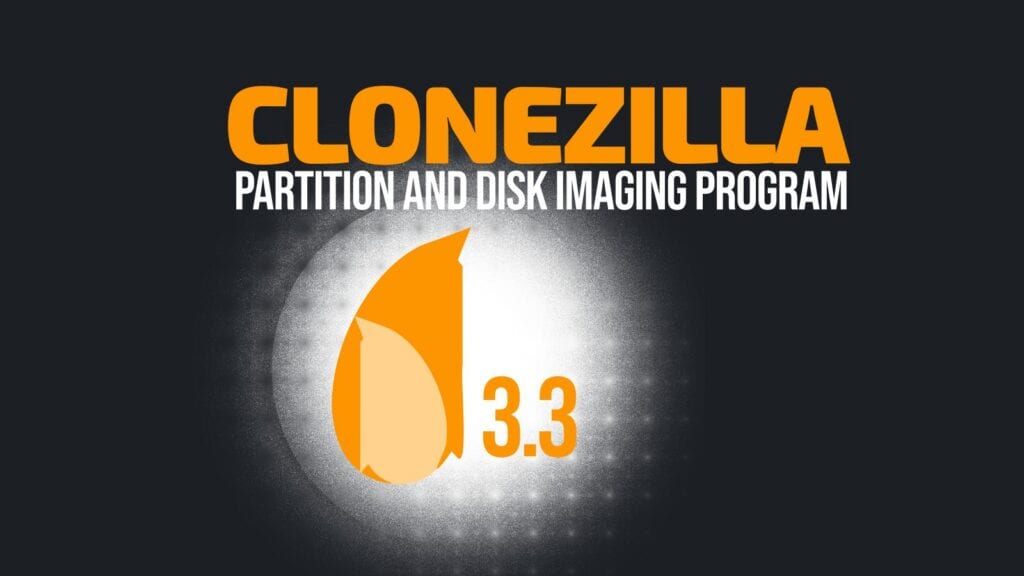Clonezilla Live, a free and open-source disk cloning and imaging software designed for system backup, recovery, and deployment, has just released its latest stable snapshot, v3.3.
This version is built on the Debian Sid repository snapshot from October 17, 2025, and ships with Linux kernel 6.16, providing broader hardware compatibility and improved driver support across a range of systems.
Among the notable updates, Partclone has been bumped to version 0.3.38, which fixes an issue related to Btrfs handling. On top of that, the new release introduces several new utilities and internal improvements:
- ocs-blkdev-sorter — a new tool that allows udev to create Clonezilla alias block devices in
/dev/ocs-disks/. It’s part of a new mechanism designed to address the long-standing issue of random kernel block device ordering. - ocs-live-time-sync — a utility that automatically synchronizes system time when an internet connection is available. If offline, Clonezilla now sets the timezone based on the BIOS clock instead.
- ocs-cmd-screen-sample — enables “run again” scripts to be used with screen, tmux, or directly in the console for better session handling.
- ocs-live-gen-ubrd — allows users to merge an OCS zip file with a U-Boot enabled image, creating a bootable raw disk for embedded use cases.
Additionally, ocs-blk-dev-info can now output detailed block device information in JSON format, making it easier to integrate Clonezilla into automated scripts and external tooling.

This release also brings several under-the-hood refinements to improve responsiveness and efficiency. For instance, ocs-get-dev-info and ocs-blk-dev-info have been optimized for better speed, while ocs-scan-disk now displays results in a more readable format.
Clonezilla’s live environment also gains a few practical additions. Both atd and cron are now included (though disabled by default), allowing for scheduled operations when needed. The live-boot package has been updated to include a new ethdevice-link-timeout parameter, with the default timeout reduced to 7 seconds for faster network detection.
Locale and keyboard selection have been moved to the login shell, and fbterm is now used by default to improve internationalization support. The new mechanism for automatically setting console font size further enhances usability in different display setups.
Advanced users will appreciate the newly added expert mode options for imaging MTD block and eMMC boot devices — both important for embedded systems and modern storage types. The new -smtd, -smmcb, -rmtd, and -rmmcb parameters handle saving and restoring operations for these devices.
Additionally, Clonezilla now checks for LVM thin provisioning and stops the process if it’s detected, preventing potential data corruption.
Other notable changes include:
- Image file names can now include parentheses
()without errors. - Recovery ISO and ZIP filenames now automatically include the CPU architecture.
- The dhcpcd-base package replaces
dhclient, which is deprecated. - The GRUB configuration now includes
efitextmode 0for better UEFI compatibility. - Full repack commands are saved in the image metadata for reference.
For more information, see the announcement. Clonezilla 3.3 is available for download at SourceForge.

Thank’s.
Have you ever tried https://github.com/rescuezilla/rescuezilla?